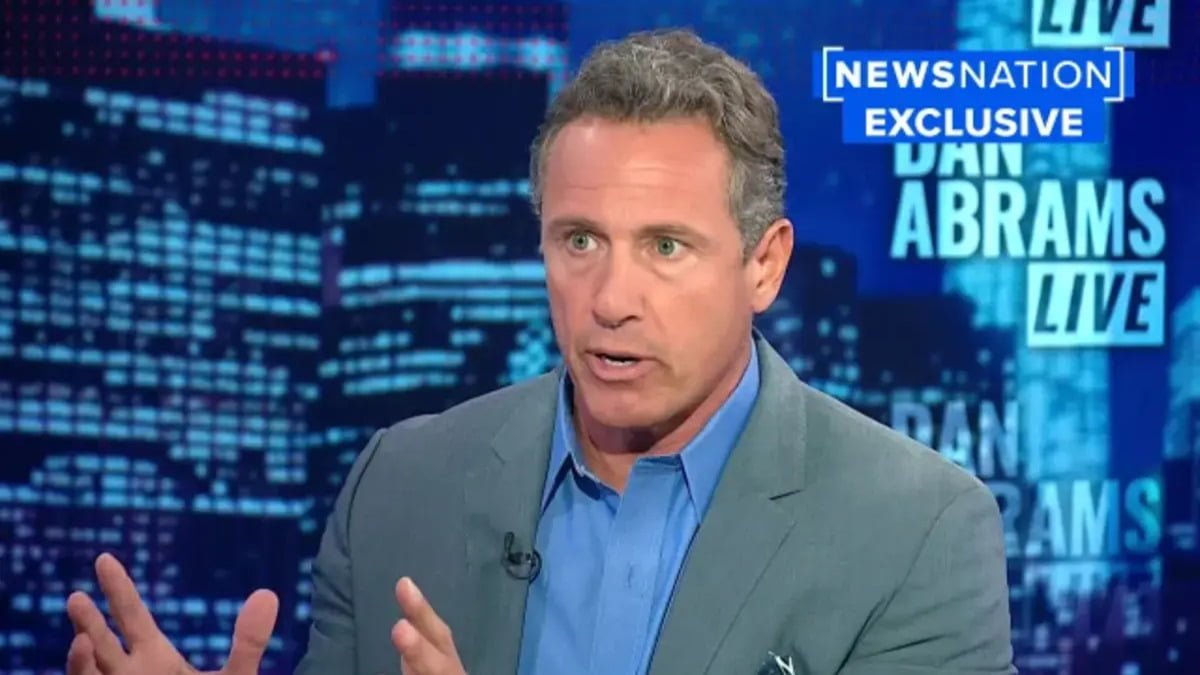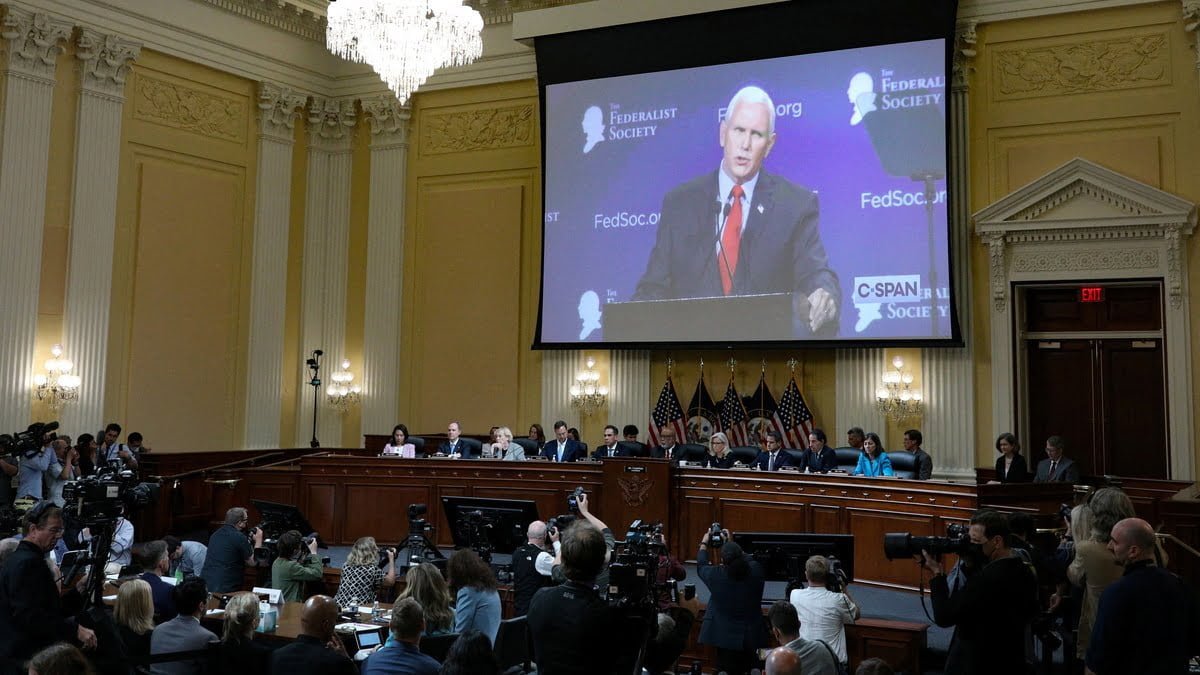It’s that time of the political cycle again.
They face off against each other, trying to prove who really has the pulse of the American electorate.
And on Election Day, voters will finally determine who is right and who is wrong.
And by they, we don’t mean the politicians.
We mean the pollsters.
With primary season in full swing, major national pollsters have stepped into their cyclical period of prominence, trying to predict – or for some, shape – the trend of electoral opinion.
Among the most accurate in recent years have been Rasmussen Reports and the Trafalgar Group, to name just a couple. But the most ubiquitous, via his weekly online programming and various news media appearances, has been Richard Baris and his Big Data Poll.
Baris, “The People’s Pundit,” hosts weekly YouTube programs, occasionally with the renowned attorney and political analyst Robert Barnes. In addition, he has appeared on national news programs, with hosts such as Tucker Carlson, with more regular spots with Steve Bannon’s War Room and others.
With all eyes looking toward November’s Election Day, the Big Data Poll has already resumed its position as a frontrunner, giving an electoral snapshot heading into August 2nd’s primaries.
For example, two weeks ago, Baris released his Arizona statewide polls, showing considerable, and growing, leads for GOP Senate primary candidate Blake Masters and GOP Gubernatorial primary candidate Kari Lake. His data showed Lake leading by 17 and Masters by 13.
And for being first with these developing snapshots, Baris was roundly derided and dismissed in many mainstream political circles.
But just a week later, many outlets are coming to the same conclusion as the Big Data Poll.
On Friday, the headline for Laurie Roberts’ opinion piece for the Arizona Republic read, “Kari Lake, Blake Masters, and Mark Finchem are all surging toward victory. Democrats cheer.” The article detailed the recent surge by both candidates. The same wave that was picked up early by Baris and simultaneously disbelieved by most analysts.
Roberts wrote Friday, “What was a 39-31 split in early July is now 51-33, according to the OH Predictive Insights poll, a combination of live callers and text. That resembles several other independent polls released in recent days. I didn’t believe them. Until now.” To her credit, she based her outlook on the emerging trend, first picked up by Baris.
On Friday, Rasmussen also released polls showing similar leads for the duo – Masters by 12 in his GOP Senate primary race and Lake by nine in her Arizona governor primary.
And just a day earlier, Trafalgar Group showed Masters up by eight and Lake by nine. Each reputable poll verifies what Big Data Poll had shown a week earlier.
Baris began last week’s program by taking a victory lap of sorts.
“I just want to say before I start this that you might have noticed Doug Ducey’s own pollster. Just all the abuse last week I took with that poll, and Doug Ducey’s own pollster just came out. And so far, I’ve just seen the Governors. I’m sure it says the same thing with the Senate if they’re polling that as well. But the fact of the matter is, the CD Media Poll definitely had Kari Lake leading and our next guest (Blake Masters) leading.”
Regarding Arizona Governor Doug Ducey, Baris was referring to a newly-released Data Orbital poll out of Arizona, which also showed Lake leading by 11 over Karrin Taylor Robson.
When political writer, David Catanese, tweeted the final @OHPredictive polls before this week’s primaries, which also showed Lake leading by 18 and Masters by 15, Baris tweeted, “Damn, that looks familiar. Looks like our final interviews. That’s rather remarkable.”
The Big Data Poll has been correct with most of its polling over recent years. In 2020, he was correct in calling Florida and Ohio as big blowout states in favor of President Trump. He was also cautious, stopping short of saying the President would carry Nevada, Minnesota, or New Hampshire. His data also showed Trump would do well in Georgia and Arizona. Regarding those two electoral outcomes, both Baris and Barnes shared hours of analysis in the months that followed the 2020 election.
“I’m not being arrogant here. I don’t want it to come across as arrogance. It’s just that this happens every time,” Baris said with a laugh. “I release a poll; this is the way it is, this is what we’re finding. And there’s always these critics that say, ‘oh no, Lake does not lead by that much. Blake Masters is not winning by that much.’ Ok, whatever.”
Baris has spent countless hours over the past few years detailing the shortcomings of the current polling industry – from their methods to their agendas. He has often described the difference between reputable pollsters, whose goal is to take an accurate snapshot of public opinion, and groups that incorrectly skew their samples or build a model based on flawed surveys. He also notes that as much as who you poll and how you weigh the samples, it is crucial to examine how you ask the question.
In last week’s program, he specifically cited specific data-collecting methods as being better than others. Specifically, he said that faced with a months-long pandemic shutdown, many people signed up for internet polls and panels out of pure boredom. These people, Baris says, now make up a much higher percentage of online polls and surveys, dramatically skewing the results.
“A lot of these people are just really high-interest voters, and they don’t represent the entire electorate,” Baris said. “So these consumer panels are really blowing the metro vote way too; it’s way too much in the sampling.”
On Saturday, Baris tweeted, “It’s just crystal clear at this point that certain pollsters have no interest in correcting their repeated failures.”
Over the years, Baris’ People’s Pundit Daily and What Are The Odds, with Baris and Barnes programs, have become YouTube staples for political junkies and data nerds alike. Master classes in statistical analysis, demographic trends, and trending political issues.
Last week, Baris made a few other predictions based on his mid-year polling and gauge of the current electoral mood.
Number one – Kari Lake is the early favorite to win the race for Governor of Arizona, regardless of the mainstream media narrative that she is “unelectable.”
Number two – in a break from the popular media narrative, his surveys found that those supporting the overturning of Roe vs. Wade are 10% more “certain to vote” than those opposing it.
And number three – Donald Trump and Ron DeSantis would be an “unbeatable ticket” en route to Republicans re-capturing the White House in 2024.
This week, we will see how Big Data’s polling holds up during the primaries. And over the next few months and a couple of years, viewers will watch Baris’ programming to see if his results remain predictive of our nation’s most crucial races and issues.

Rick Schultz is a former Sports Director for WFUV Radio at Fordham University. He has coached and mentored hundreds of Sports Broadcasting students at the Connecticut School of Broadcasting, Marist College and privately. His media career experiences include working for the Hudson Valley Renegades, Army Sports at West Point, The Norwich Navigators, 1340/1390 ESPN Radio in Poughkeepsie, NY, Time Warner Cable TV, Scorephone NY, Metro Networks, NBC Sports, ABC Sports, Cumulus Media, Pamal Broadcasting and WATR. He has also authored a number of books including “A Renegade Championship Summer” and “Untold Tales From The Bush Leagues”. To get in touch, find him on Twitter @RickSchultzNY.







